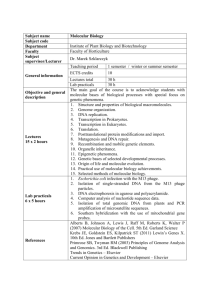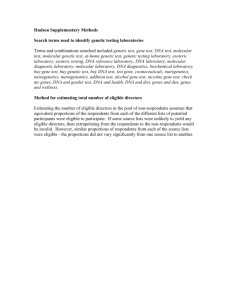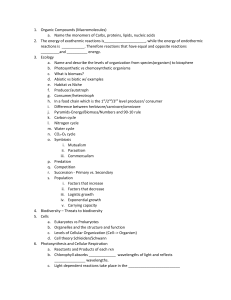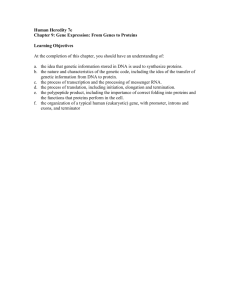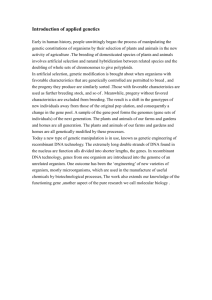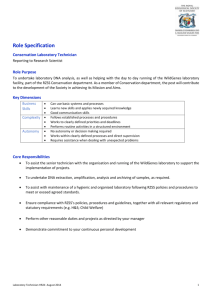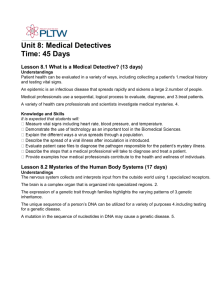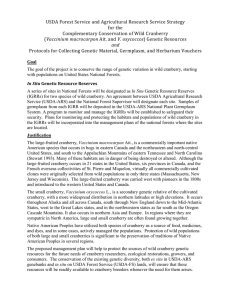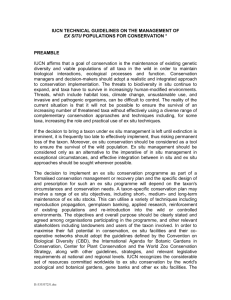MOLECULAR MARKERS
advertisement
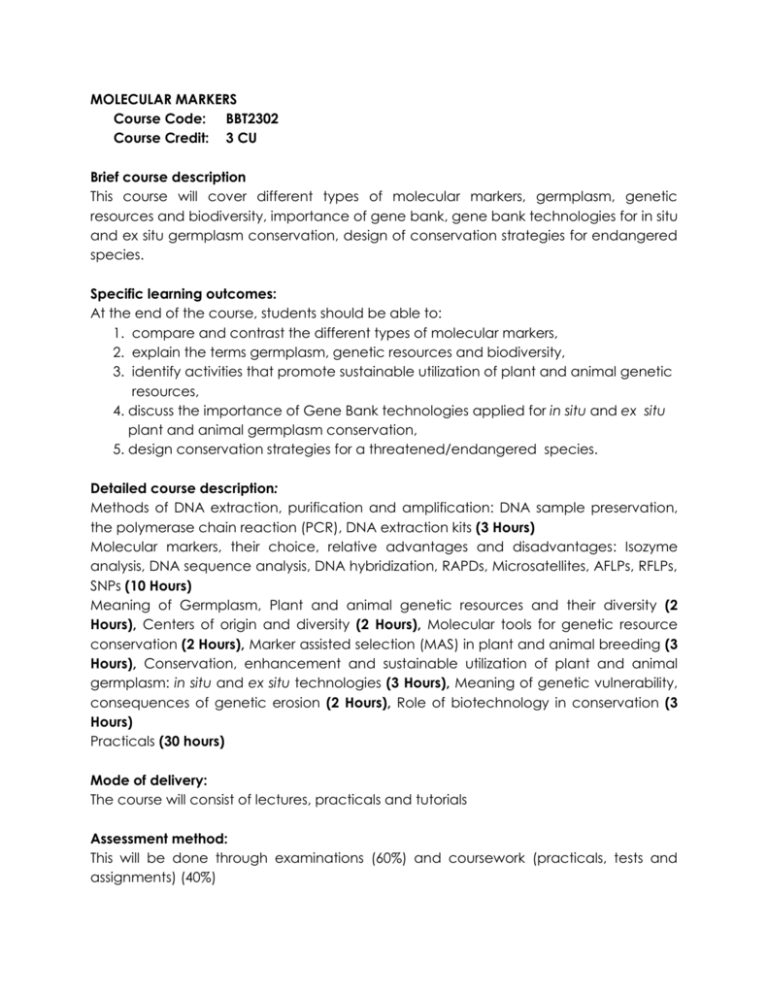
MOLECULAR MARKERS Course Code: BBT2302 Course Credit: 3 CU Brief course description This course will cover different types of molecular markers, germplasm, genetic resources and biodiversity, importance of gene bank, gene bank technologies for in situ and ex situ germplasm conservation, design of conservation strategies for endangered species. Specific learning outcomes: At the end of the course, students should be able to: 1. compare and contrast the different types of molecular markers, 2. explain the terms germplasm, genetic resources and biodiversity, 3. identify activities that promote sustainable utilization of plant and animal genetic resources, 4. discuss the importance of Gene Bank technologies applied for in situ and ex situ plant and animal germplasm conservation, 5. design conservation strategies for a threatened/endangered species. Detailed course description: Methods of DNA extraction, purification and amplification: DNA sample preservation, the polymerase chain reaction (PCR), DNA extraction kits (3 Hours) Molecular markers, their choice, relative advantages and disadvantages: Isozyme analysis, DNA sequence analysis, DNA hybridization, RAPDs, Microsatellites, AFLPs, RFLPs, SNPs (10 Hours) Meaning of Germplasm, Plant and animal genetic resources and their diversity (2 Hours), Centers of origin and diversity (2 Hours), Molecular tools for genetic resource conservation (2 Hours), Marker assisted selection (MAS) in plant and animal breeding (3 Hours), Conservation, enhancement and sustainable utilization of plant and animal germplasm: in situ and ex situ technologies (3 Hours), Meaning of genetic vulnerability, consequences of genetic erosion (2 Hours), Role of biotechnology in conservation (3 Hours) Practicals (30 hours) Mode of delivery: The course will consist of lectures, practicals and tutorials Assessment method: This will be done through examinations (60%) and coursework (practicals, tests and assignments) (40%) READING LIST 1. BROWN, T.A. 2001. Gene cloning and DNA Analysis. 4th Edition. Blackwell Publishers 2. Avise (2004). Molecular Markers, Natural History, and Evolution. Second Edition. Sinauer Associates. 3. Srivastava P.S., Alka Narula, Sheela Srivastava (2004) Plant Biotechnology and Molecular markers. Kluwer Academic Publishers, The Netherlands 4. ANGELA KARP, PETER G. ISAAC, DAVID S. INGRAM (2001) Molecular tools for screening biodiversity: plants and animals. Kluwer Academic Publishers. Netherlands.
